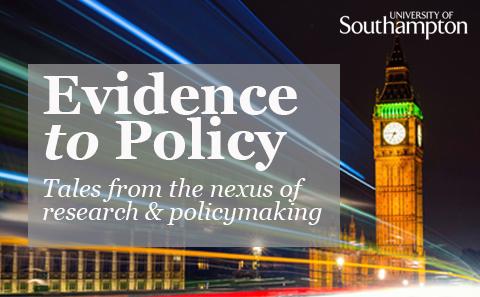
Higher Education Digest
Catch up with all the Higher Education Digest edition's since January 2016

Highlights from this month's Higher Education Digest include:
1. The Chancellor made the Autumn Statement on 23 November. The main announcement of relevance to Universities was an additional £4.7B for research and innovation over four years (£425M in 17/18, £820M in 18/19, £1.5B in 19/20 and £2.0B in 20/21). This will be part of the Science and Innovation Budget, and administered by the Research Councils and Innovate UK. There is limited indication as to the targeting of this funding, although there is a mention of an Industrial Strategy Challenge Fund. Some of the funding will be for innovation funding via Innovate UK but there is no indication of the split between research and innovation. This investment is badged as part of a new £23B National Productivity Investment Fund.
2. The other main implication for universities is an increase in the rate of inflation predicted for 2017-18, compared to the rate announced in March which has already been used to calculate the fee increase. If the new predicted rates are correct, the fee increase will not fully cover the cost of inflation.
3. The Higher Education and Research Bill is currently being debated by Parliament. The Bill sets up the Office for Students and UK Research & Innovation. It also introduces makes it easier for new entrants to teach degrees and become universities. The Bill completed its passage through the House of Commons in November. Following concerns expressed by the Committee scrutinising the Bill, a number of minor Government amendments were introduced at the Report stage of the Bill. None of the proposals from the opposition members of the Committee were accepted. The Bill has had its first reading in the House of Lords. Second reading will be on 6 December, and the Committee Stage (where amendments may be proposed) is likely to begin in January. It is expected that the House of Lords will suggest significant amendments to the Bill.
4. On 10 November, HEFCE published its annual report on the Financial Health of the HE Sector. Points to note included:
• There is a trend of increasing borrowing and falling liquidity, which is unsustainable in the long term.
• Average sector surpluses are projected between 2.3% and 4.3%, but with a very wide range.
• The sector is projecting a high level of growth of Home/EU students, which may be difficult to achieve (given declining demographics, Brexit and an increase in degree apprenticeships).
• Significant investment in infrastructure is needed, and significant increases in capital investment are projected.
5. On 17 November, the House of Commons Select Committee for Science and Technology published the report of its inquiry on the implications of science and research of Brexit. The report indicates five key areas of concern:
• Funding (the potential loss of access to Horizon 2020 and its successors)
• People (the attractiveness of the UK to EU researchers)
• Collaboration, leadership & influence (UK researchers as part of multi-lateral projects)
• Regulation (retaining ones which support research collaboration, revising others which hinder innovation)
• Facilities (access of UK researchers to EU research facilities in other countries, and the future of EU facilities in the UK)
6. The report has a number of recommendations to address these five concerns. It also recommends the swift appointment of a Chief Scientific Advisor for the Department for Exiting the European Union, and that metrics are developed to assess how well the UK avoids the risks of Brexit for science and research.
7. The 2017 QS Graduate Employability Rankings were released in November. The top 5 universities globally were Stanford, MIT, Tsinghua, Sydney and Cambridge. The top 5 UK universities were Cambridge (5th), Oxford (8th), Imperial (20th), UCL (24th) and Manchester (35th). The University of Southampton is in the group of universities ranked between 101st and 150th, joint 15th in the list of UK universities.
8. The Government published two consultations in November about student loans in England. In the consultation about PGR loans, the key recommendations are:
• Loans of up to £25,000 available to PGR students not in receipt of an RCUK studentship
• The loan is a contribution to study, not specifically for tuition fees or maintenance costs.
• There would be a maximum course length of six years.
• The loan would be available from 2018/19
9. In the consultation about part time maintenance loans, the key recommendations are:
• Part time students can borrow an annually capped amount, a percentage of the full time loan and varying by intensity of study.
• Minimum average annual intensity of 25% FTE; maximum course length 16 years for a 4 year FTE course at 25% intensity.
• Loan is a contribution to living costs
• The loan would be available from 2018/19.
10. Both consultations arte open until 16 December, and final decisions will be made by the Government in the New Year.
11. Professor Janet Beer, Vice-Chancellor of the University of Liverpool, has been elected the next President of Universities UK. She will take over the post from Professor Julia Goodfellow, Vice-Chancellor of the University of Kent, in August 2017.
12. On 30 November, the Government announced a new nursing degree apprenticeship. Under the scheme, people with a variety of different work experience and qualifications will be able to join the apprenticeship and stay in work whilst studying. The aim is to open up a career in nursing to people from all backgrounds.
13. The think tank Centre for Cities published a report entitled The Great British Brain Drain on 21 November, which examined where graduates had moved to for work six months after graduation. Key points included:
• London employs 22% of all new working graduates, but 38% of those with a first or a 2:1 from a Russell Group University
• Many cities outside London do not retain most of the students that move to the city to study.
• However, cities with universities have a net “brain gain” (from retaining some of their own graduates and attracting others).
14. The Welsh Government have published their response to the Diamond Review of HE funding in Wales, which was published in September. In the response they accept the main proposals of the review, including:
• The abolition of tuition fee grants, to be replaced by loans up to £9000 or the maximum cost of tuition fees
• A non-means tested maintenance grant of £1000 for all Welsh domiciled students
• Further means-tested maintenance grants. The upper threshold of these grants will be a family income of £59,200 (this is lower than the £81,000 recommended in the Diamond Review).
• Maintenance loans available for those not eligible for grants.
15. The Welsh Government intend to introduce these reforms for students starting in 2018/19, and are current consulting about the proposals.
16. In Scotland, the Scottish Government have confirmed that the board of the Scottish Further and Higher Education Funding Council (SFC) will be merged into a larger body which will also include Skills Development Scotland, Highlands and Island Enterprise and Scottish Enterprise.
Gavin Costigan
Director of Public Policy | Southampton

Catch up with all the Higher Education Digest edition's since January 2016

Introducing Evidence to Policy; a new space to muse on the intersection of academia and policymaking